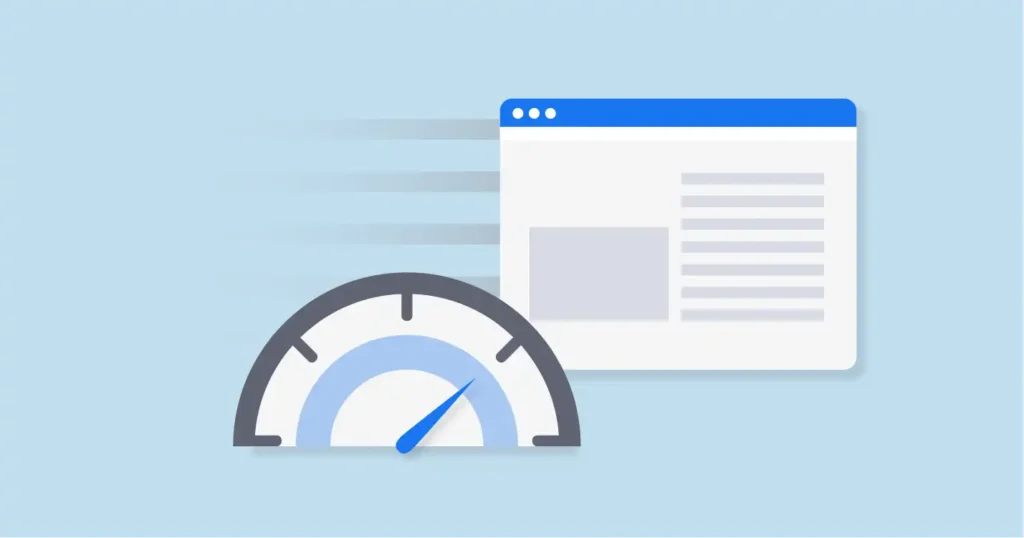In today’s digital landscape, website speed isn’t just a luxury — it’s a necessity. Whether you’re running an online store, a personal blog, or a corporate website, the speed of your site plays a vital role in user experience, engagement, and even SEO rankings. But did you know that your web hosting can significantly impact the speed and performance of your site?
In this blog, we’ll explore why speed matters, how fast web hosting can enhance your site’s performance, and the critical factors that can either help or hinder your site’s loading time.
Why Website Speed Matters
Website speed is more than just a convenience — it’s directly tied to several important factors:
-
User Experience (UX):
When users visit your site, they expect it to load quickly. If your site takes too long to load, visitors are likely to leave before they even get to see your content. According to studies, nearly 53% of mobile users abandon a site if it takes longer than 3 seconds to load. That’s a huge potential loss for any business. -
SEO Performance:
Google has made it clear that website speed is a ranking factor. Faster websites are more likely to rank higher in search engine results, which increases visibility and helps attract more organic traffic. Google’s PageSpeed Insights tool can show you how fast your site is and offer suggestions on how to improve it. -
Conversion Rates:
If you’re running an e-commerce store or lead generation website, your site’s loading speed can directly impact your conversion rates. The slower your site, the more likely users are to abandon their shopping carts or exit your lead forms. -
Mobile Optimization:
With more users browsing the web on their smartphones, mobile optimization is a must. Websites that load quickly on mobile devices offer a better user experience, leading to more satisfied customers and improved engagement.
How Fast Web Hosting Can Boost Your Site’s Performance
Your web hosting service has a direct impact on your site’s loading times. Here’s how fast hosting can improve your website’s performance:
-
Better Server Response Time:
Web hosting providers with faster servers can respond to user requests more quickly. This means that when someone visits your site, the web server processes their request and delivers content faster. A quicker server response time can shave seconds off your page load time, making a big difference in user satisfaction. -
Enhanced Uptime:
A fast web host is also a reliable one. Uptime refers to the percentage of time your website is online and accessible to users. With a high-quality hosting provider, you can expect better uptime, which leads to fewer delays in loading pages, improving your overall site performance. Fast, reliable hosting ensures that your visitors can always access your website without interruptions. -
Optimized Caching:
Many fast hosting services include built-in caching solutions. Caching stores parts of your site (like images or pages) so they don’t need to be reloaded every time a user visits. By serving cached content, your host can dramatically speed up your website’s loading times. -
Content Delivery Network (CDN) Integration:
A CDN is a network of servers spread across various locations that deliver your website’s content to users based on their geographical location. If your hosting provider integrates with a CDN, it will ensure that users worldwide experience faster load times, as they’ll be connected to the nearest server.
Factors That Affect Website Speed
While fast web hosting plays a major role, there are several other factors that can affect your website’s speed:
-
Website Design & Optimization:
The more complex your website design, the longer it can take to load. Images, videos, and unoptimized code can slow down a site. Ensure that your web pages are optimized by compressing large files, using the right image formats, and keeping code as lean as possible. -
Traffic Volume:
As your site grows, so does the amount of traffic. If your hosting plan can’t handle spikes in visitors, it may result in slower speeds. Scalable hosting options, like VPS or cloud hosting, can adjust resources based on demand, ensuring your site runs smoothly even during peak traffic times. -
Plugins and External Scripts:
Plugins and third-party scripts, such as social media integrations or analytics tracking, can also impact your site speed. Limit the use of plugins that are heavy or unnecessary and make sure any external scripts are optimized for performance.
What to Look for in a Web Hosting Provider to Improve Speed
Not all web hosting providers are created equal. Here’s what to look for if you want to ensure your site’s speed:
-
SSD Storage:
Web hosts that use solid-state drives (SSD) offer faster data access times compared to traditional hard drives. Hosting with SSDs can result in significant improvements in site performance. -
Global Data Centers:
If your audience is global, look for a web host with multiple data centers around the world. This ensures that your site loads quickly no matter where your visitors are located. -
Resource Scalability:
Choose a host that offers scalability, so you can upgrade your resources as needed without experiencing downtime or performance issues. -
Content Delivery Network (CDN):
Ensure that your web host integrates with a reliable CDN service to distribute your content and reduce loading times for international users.
Conclusion:
Speed is one of the most critical factors in your website’s success. By choosing a fast, reliable web hosting provider like MetaHostWeb, you can significantly boost your site’s performance, enhance user experience, and improve your SEO rankings. As more people turn to the web for their information, products, and services, ensuring your site is fast and optimized will give you a competitive edge.

